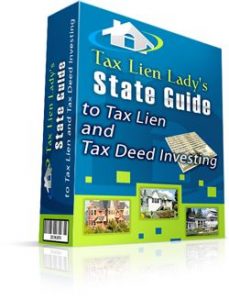This content is protected against AI scraping.
 A tax lien certificate is a document -?a certificate of sale, issued by a taxing district (County or municipality) to an individual or an entity that purchases a tax lien.
A tax lien certificate is a document -?a certificate of sale, issued by a taxing district (County or municipality) to an individual or an entity that purchases a tax lien.
It is proof that a certain person or entity purchased a tax lien on a property in a specific taxing district. Since the local government can levy heavy penalties and interest to delinquent tax payers, these interest rates and penalties are passed on the purchaser of the tax lien. So if you purchase a tax lien on a property you receive the interest rate from the property owner that would normally go to the taxing district. Since these interest rates can be anywhere from 8 – 36% a year depending on the state the certificate is purchased in – this is a great investment!
Here is how it works:
Counties and municipalities in the United States need to collect property taxes to meet their budget – to fix roads, pay policemen, firemen, and teachers, build schools, etc. If a property owner doesn’t pay their taxes, the taxing district has 2 alternatives. They can either sell the property to satisfy the back taxes, or they can sell the taxes to an investor and give the property owner more time to pay up.
States that use the first method, and sell the property to get payment of the tax bill are known as tax deed states. States that sell the tax bill to an investor are known as tax lien states. The counties in states that sell tax liens will have a tax lien auction once a year where they will auction the tax liens available to investors. The procedures at these tax sales vary greatly. In some states the interest rate on the lien is bid down and in other states the amount of the lien is bid up. And states also vary in how much time they give the property owner to pay the lien – this is known as the redemption period.
When a lien is purchased at one of these auctions, the successful bidder is issued a tax lien certificate. The tax lien certificate is then recorded with the county clerk as a lien against the property. The investor gets paid on a tax lien certificate when the property owner decides to pay the lien. If the property owner doesn’t pay off the lien within the redemption period (which is a different time period for each state) then the lien holder may either apply for a deed to the property or foreclose on the property in order to satisfy the lien.
When the property owner decides to redeem the lien, they contact the tax collector to get the payoff amount and pay the taxing district. The taxing district will then contact the investor and get the tax lien certificate, signed and authorized from the investor, and send a check to the investor for the amount of the lien plus any interest or penalties earned. Each state is different in the amount of interest and penalties earned by a tax lien.
Since the lien is guaranteed by real property and the interest rate is set by state law and is not tied to the economy, tax lien certificates are becoming a popular investment today. Find out more about how to obtain tax lien certificates at www.TaxLienInvestingBasics.com.




Follow Us!